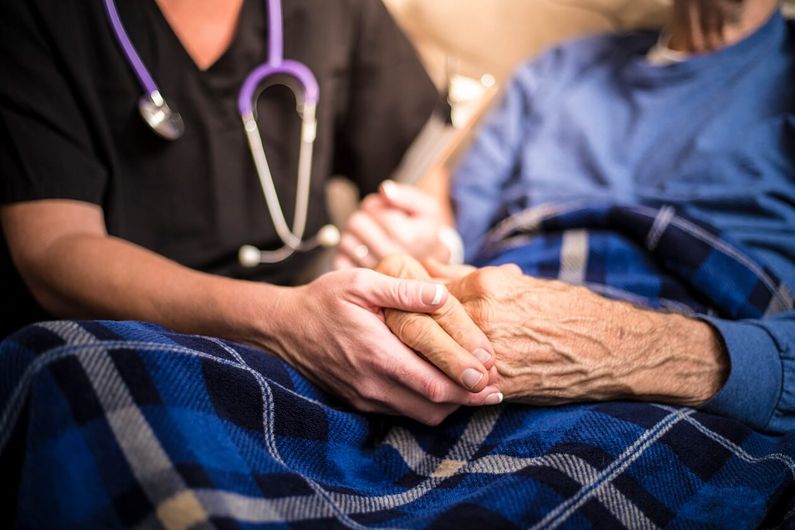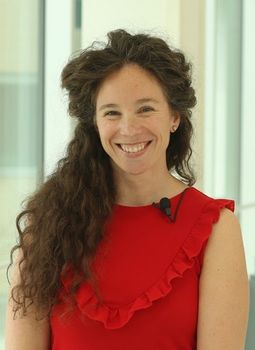Overlooked and underused: help for assisted dying goes unused
- UdeMNouvelles
02/28/2023
- Martin LaSalle
Health-care teams providing medical assistance in dying are often unaware of the existence of interdisciplinary support groups created to help them.
Interdisciplinary support groups (ISGs) exist to help health-care teams that offer medical assistance in dying (MAiD). But even though ISGs were introduced in Quebec in 2016, their mandates and services still aren’t well-known.
And inconsistencies in the way the groups practice are a problem throughout the province.
These are some of the issues identified by ethicist Catherine Perron, in her doctoral project in clinical ethics for the biomedical sciences program at Université de Montréal’s Faculty of Medicine.
Her research project, completed under the direction of professors Marie-Eve Bouthillier and Eric Racine, responds to an approach initiated by the Quebec Ministry of Health and Social Services (MSSS). More than five years after the Act Respecting End-of-Life Care came into force, the MSSS sought an objective view on ISG implementation and practices across Quebec.
Aside from publishing her initial findings in the Healthcare Management Forum journal, Perron prepared a report for the MSSS with recommendations to be studied during the upcoming ISG Community of Practice symposium in June.
Perron’s goal was to identify and analyze best practices so that she could offer recommendations on whether they should be implemented in the approximately 30 ISGs in Quebec. To do so, she carried out a mixed-method study divided into three phases.
245 people surveyed
In the first phase, she conducted a survey of 245 people from a variety of disciplines who offer medical assistance in dying. The sample included physicians, nurses, pharmacists, social workers, clinical ethicists, psychologists, spiritual-care workers and family partners,
“The survey showed that these professionals were often unaware that ISGs existed and that there is no platform to tell the public about them,” said Perron.
Many respondents, even those who were ISG members, didn’t know where to turn for accurate information approved by regulators such as the MSSS, the Quebec College of Physicians and the Commission on End-of-Life Care: “The indications provided by the three regulators are often inconsistent and sometimes contradictory,” she added.
Furthermore, some caregivers within the ISG "community of practice" are reluctant to share their knowledge and methods for fear of criticism.
The survey also showed that some physicians are skeptical about whether ISGs actually add value. These physicians are particularly pro-MAiD and are affiliated with another community of practice, exclusively for physicians who offer MAiD, that is independent and not supported by the MSSS.
Dozens of interviews and discussions
In the second phase, Perron carried out semi-structured interviews with 59 people who coordinate their ISG.
And in the third phase she led seven discussion groups with 35 ISG coordinators and representatives of palliative care homes. The objectives were to take a closer look at issues that have arisen in different ISGs and to get participants to confirm which practices should be promoted more widely.
“One of their main concerns was how hard it is to get information on MAiD eligibility criteria," Perron said. "Some caregivers mistakenly thought that patients still had to be close to death, which is no longer the case."
At a broader level, the recommendations identified during these interviews had to do with things like ISG composition and cooperation within these entities, support activities and ISG positioning and operations. A few of the recommendations are:
- Composition: get professional services departments involved, make sure the various disciplines and types of institutions are represented in each ISG and ensure continuity of coordinators.
- Cooperation and proximity: improve cooperation between the regulators by setting up a provincial platform for ISGs, build partnerships with palliative care homes and improve communications with the general public.
- Support activities: encourage mentorship of physicians in MAiD practices, establish partnerships between ISGs in regions where there is less demand for MAiD and ISGs in higher-demand areas, improve and cooperate on caregiver training, promote interdisciplinarity, and develop a formal range of support services for patients’ loved ones.
- Positioning and operations: a majority of respondents agreed that ISGs should not be centralized into a single support organization, since they felt that ISGs should retain a certain amount of independence and maintain close relationships with patients and their loved ones.
The discussions that will be held at the June symposium are highly important since they are aimed at making the services and information provided by ISGs more accessible, benefiting both health care teams and recipients of palliative care, end-of-life care and possibly medical assistance in dying.
Demand is highest in Quebec
This is especially true for Quebec since it is the jurisdiction with the highest proportion of people who choose assisted dying in the world.
In 2021, when the survey was conducted, 4.7 per cent of deaths in Quebec were individuals who received medical assistance in dying, compared to 3.3 per cent for Canada as a whole. Since then, the percentage in Quebec has risen to 7 per cent.
According to Perron, this is especially surprising since euthanasia is the only form of medically assisted death that is legal in Quebec. In other Canadian provinces and other countries such as the Netherlands, assisted suicide is also permitted.
“Euthanasia involves administering to a person, at that person's request and in accordance with legally established criteria, a substance that causes their death, while assisted suicide consists of offering information and providing a substance to a person who will self-administer the substance and cause their own death,” said Perron.
“In Quebec, we believe that medical assistance in dying has to be a treatment that is administered to the patient and that people who request it must receive support right to the end.”














